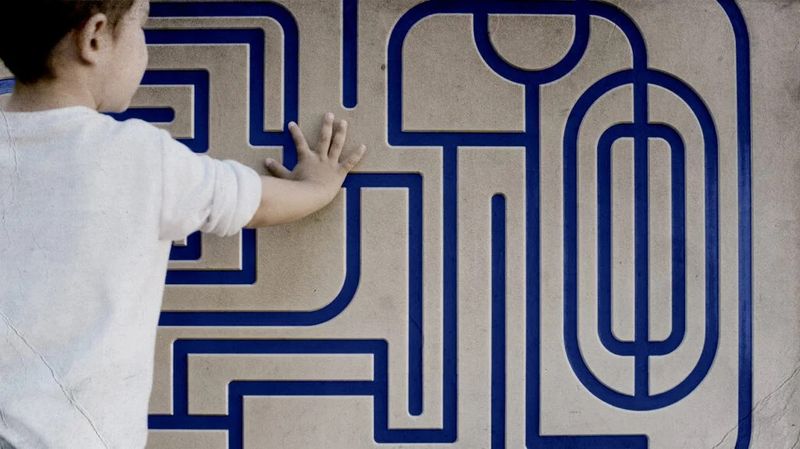Growing up with emotionally fragile parents can shape adulthood in subtle yet profound ways. These adults often develop habits rooted in their early experiences, reflecting a complex tapestry of learned behaviors, defense mechanisms, and adaptations. Here are ten common habits often seen in individuals who were raised in such environments.
1. Over-Attunement to Others’ Emotions

Always the emotional barometer, this adult senses others’ feelings as if by instinct. They often anticipate needs that haven’t been voiced, a skill honed in childhood to maintain harmony.
While this empathy fosters deep connections, it may lead to burnout. Balancing this sensitivity with self-care is crucial. It’s a double-edged sword, leaving them vulnerable yet empathetic.
Did you know? This heightened attunement sometimes makes them excellent mediators or counselors. Their ability to read a room comes from a need to preemptively manage emotional climates.
2. Tendency to Avoid Conflict

Conflict feels like stepping onto a battlefield unarmed. Raised walking on eggshells, avoiding discord is second nature. They might evade confrontation, fearing it could unravel relationships.
This avoidance often leads to bottled emotions, which can later manifest as stress or anxiety. Paradoxically, it sometimes creates more conflict in personal relationships.
Fun fact: Many such adults excel in roles that require diplomacy. Their knack for peacekeeping is both a strength and a challenge, requiring constant navigation between inner peace and external harmony.
3. Perfectionism as a Shield

Perfectionism becomes an armor, shielding against perceived judgment. This habit reflects a childhood of walking a tightrope, striving to meet fluctuating expectations.
While attention to detail can lead to professional success, it also breeds self-criticism. The relentless quest for flawlessness often leads to stress.
Did you know? This drive for perfection often conceals a fear of inadequacy. The burden of being perfect can be lightened by embracing imperfection, a lesson often learned with time and self-discovery.
4. Difficulty Expressing Personal Needs

Voicing needs feels like speaking a foreign language. Growing up, personal desires were often secondary to maintaining peace, leading to suppressed self-expression.
This can result in unfulfilled relationships, where their own needs are overshadowed. Learning to articulate desires is a journey of self-awareness and growth.
Quirky fact: Some adults find creative outlets, like art or writing, as safe spaces to express themselves. These avenues become therapeutic, allowing a voice that was once stifled to emerge.
5. Hyper-Vigilance in Relationships

Trust is a delicate dance, learned through unpredictable parental moods. Hyper-vigilance becomes a watchful guardian, scanning for signs of trouble.
While this can protect from emotional pitfalls, it often leads to anxiety in relationships. Trust is rebuilt gradually, with patience and understanding.
Did you know? Some find solace in partners who are open and consistent, helping to ease this constant alertness. Finding such a partner is like discovering a calm harbor in a stormy sea.
6. Chronic People-Pleasing

Pleasing others becomes second nature, a relic from a childhood of seeking approval. They often say ‘yes’ at the expense of their own comfort, afraid of disappointing others.
This habit fosters stress, as personal boundaries become blurred. Learning to say ‘no’ is a crucial, though challenging, step towards self-respect.
Fun fact: Many turn to assertiveness training to balance this tendency. These skills transform interactions, promoting healthier, more balanced relationships.
7. Fear of Abandonment

Abandonment fears lurk like shadows, fueled by a fear of being left alone. In youth, affection often seemed transient, leading to a vigilant watch for signs of withdrawal.
This fear can strain relationships, as they seek constant reassurance. Building self-confidence and trust becomes a lifelong endeavor.
Did you know? Some channel this fear into creative projects, finding solace in solitary pursuits. These activities become a sanctuary, offering both expression and comfort.
8. Over-Apologizing

Sorry becomes a refrain, spoken even when unnecessary. Apologies serve as a safeguard against perceived disapproval, a tactic learned in childhood.
This habit can undermine self-esteem, making them seem overly deferential. Understanding the impact of words can help balance sincerity with self-respect.
Fun fact: Some adults practice mindfulness to break this habit, fostering greater self-awareness and confidence. This journey is about finding their voice amid the echoes of ‘sorry’.
9. Reluctance to Take Risks

Risks feel like uncharted waters, often avoided to maintain the status quo. Childhood unpredictability taught them to favor safety over spontaneity.
While caution is wise, it sometimes leads to missed opportunities. Embracing calculated risks can open new doors to growth and fulfillment.
Did you know? Some find courage in supportive communities, where encouragement helps them venture beyond their comfort zones. These networks act as lifelines in moments of doubt.
10. Struggle with Self-Identity

Identity feels like a puzzle, pieces scattered by conflicting childhood messages. They often explore various paths to find their true selves.
This journey can be both freeing and frustrating, as they oscillate between external expectations and internal desires. Creativity often becomes an ally in this quest.
Fun fact: Many engage in lifelong learning, finding joy in discovering new aspects of themselves. This exploration is a dance of self-discovery, rich with possibilities.
Hi all, I am Sidney, an accountant, a hobbyist photographer, and a mother to two sweet girls who are my motivation. I love sharing the tips and tricks I gained all these years I’ve been a mother. I hope it will help you!

